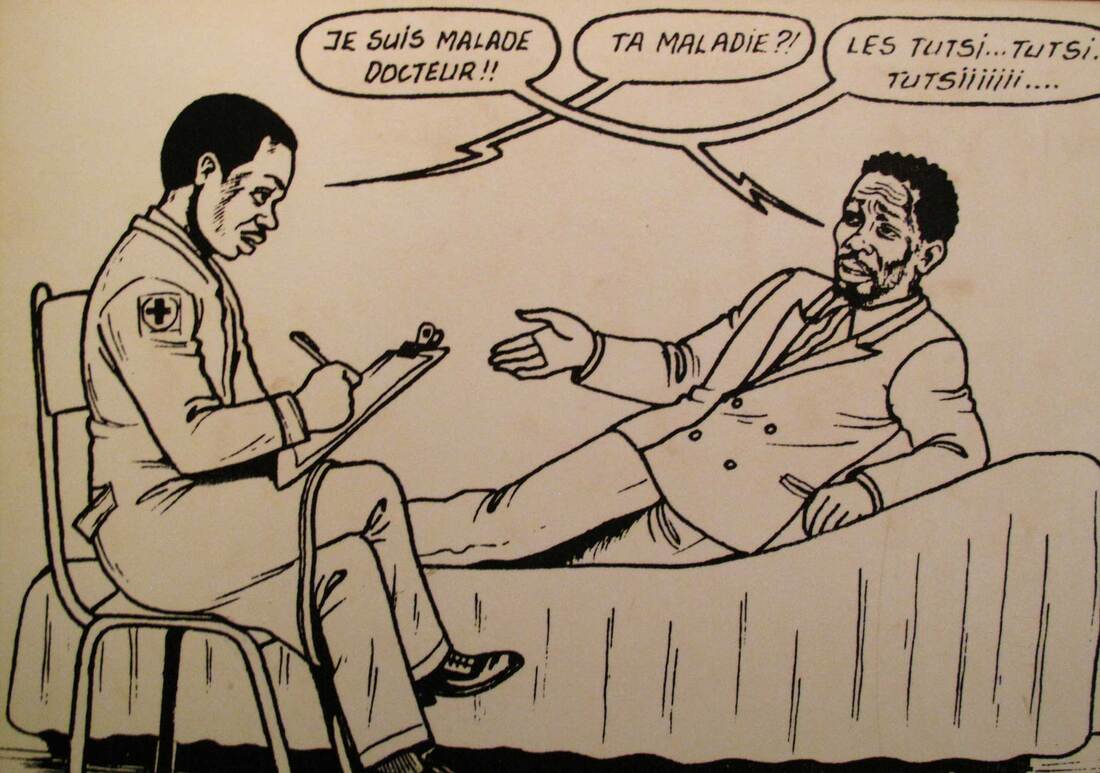1. What were the key events of the '100 Days' of Genocide?
The genocide started immediately after news of Habyarimana's assassination broke. For the next 100 days, the most efficient massacre of human beings in history took place. Key facts and issues:
- As many as 1 million Tutsis and moderate Hutus were killed.
- The majority were killed by machetes. At least 200,000 Hutus were therefore directly involved in the killing.
- Rape and sexual abuse were a prominent part of the genocide.
- The international community and UNAMIR were worse than useless throughout.
- The genocide only finished with the successful invasion of Rwanda by the RPF, who captured Kigale on the 4th July.
- Network Zero and the Hutu Power movement fled with Hutu refugees to huge camps in Zaire where they continued to massacre local minority populations.
Think back to the Genocide Cable. What were the key steps in the Hutu Power plan for implementing genocide in Rwanda?
Lesson 1. How did Hutu Power take over the government?
|
Hutu power was a movement focused on pushing the myths around the Tutsis, developing violent gangs in the Interahamwe who were at the forefront of the genocide. To enable the genocide to occur, once the president was dead, Hutu power figures quickly filled the political vacuum, giving them access to the power they would need to coordinate a genocide.
|
|
How did the genocide develop?
Open task sheet Research using the textbook and the PBS website to find out. i) How did the Hutu Power Takeover? Eliminating Moderates ii) Removing international Agreements and Personnel iii) What happened during the 100 days of genocide? |
Lesson 2 and 3. Witnesses to Genocide:
|
As a class we are going to watch the PBS / BBC documentary that follows the course of the genocide. This is to get an overview of the impact of the genocide at the time. Be aware, this is very graphic and shows some tragic acts taking place.
As you watch, take in the full horror, but also consider how the genocide emerged, the failures of the international community and the nature of the genocide.
Take notes using the cornell method. |
D. Case Study...
|
| ||||||||||||
2. Why was International Intervention so limited?
As we have seen already, France and Belgium have been directly implicated in the genocide. The extent to which this is fair has already been touched upon, but what is clear is that the entire international community avoided fulfilling their obligation under the UN Genocide Convention. Your task today is to research one group/nation and arrive at a judgment on their level of culpability.
You will:
1. Research your area using the resources below. The textbook extract will be your straing point.
2. Write up your findings on the shared document below (you will copy and paste your work in at the end only to prevent confusion).
3. Present your findings using the shared presentation slides below - relevant images only under your section. Active listening and questions are expected.
4. Make a copy of the shared document at the end for your own notes.
|
1. SHARED DOCUMENT
(Insert your research here)
|
2. SHARED PRESENTATION
(Insert your images here)
| ||||||||||||


